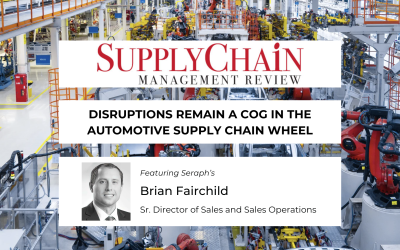In recent years, many private equity firms have started taking a serious look at impact investment. Part of this is certainly motivated by the desire to be perceived as a socially responsible business. However, while many of these projects have been adopted for PR and altruistic motives, impact investing is a practice founded on first principles. Many businesses with a philanthropic or social leaning to them are focused on solving real problems with outsized impacts on human flourishing. One of the first things anyone learns in the business world is the relationship between big solutions and big profits. When PE firms look outside of the developed world and into the developing world where substantial problems exist, they may find equally substantial solutions. Exceptional solutions combined with faster economic growth rates can be the perfect mix for high-ROI PE investing.
The Fallacy of Low-Returns
It is true that many social enterprises are built with idealistic or even unreasonable goals in mind. Frequently, many social entrepreneurs lack sufficient business acumen to make their projects successful, believing that passion will fill a tangible skills gap. However, those entrepreneurs with a solid business foundation that decide to take on some of the world’s biggest problems may find themselves with a surprising amount of success.
Some of the biggest problems, like banking access, access to clean drinking water, clean energy, and more, can be solved with for-profit models. Additionally, the introduction of a PE firm to provide guidance may add legitimacy and stability to pursue further rounds of funding. PE firms that decide to acquire these social enterprises with solid business foundations may find themselves, like the founder, with a world of opportunity ahead.
Many Impact investment funds are seeing significant alphas, sometimes up to 20% annual growth rate, and can be found relatively close to home in the US and Latin American countries. Every year, billions of dollars flow to enterprises with a philanthropic view on their operations, and to great benefit. Impact investment isn’t just for successful PR campaigns; there is appreciable profit that can be made from these types of ventures as well.
Additionally, the length of impact investments is frequently on par with other investments that PE firms undertake. The amount of time needed to purchase a company, grow it, train new management, and develop an exit strategy may vary. The exact moment of the exit strategy may depend on the overall market conditions and other factors outside of the influence of a PE firm. However, most impact investment projects wrap up or receive more advanced funding within five years.
Conventional Funds Adopting Impact Investment
Conventional funds and private equity firms are starting to notice the social and financial impacts generated by impact investing. Socially-oriented companies that attract impact investment are in need of the deep talent that general partners can bring to the table. Impact investment can be somewhat riskier than traditional private equity investments, however, the proper amount of due diligence and the right business decisions can mitigate these risks. As the businesses mature and impact investors remain invested in the day-to-day of the business, other investment opportunities like VC funding become more viable. Many businesses have already progressed from impact investing to VC funding rounds in the eight-digit-figure range.
The Difference Between Impact Investing and ESG
Impact investing and ESG (environmental, social, and governance) are two totally different ideas. While the two do share some similarities, they are not the same. The former has caused some polemic in recent years, but impact investing lacks any sort of political ideology and merely seeks to evaluate if someone is doing good business for a good purpose.
At its most basic level of analysis, impact investment is an investment strategy employed by private equity firms and other investment institutions with the expectation of a positive return. As opposed to ESG, impact investing is based on sound financial analyses and robust evaluations of the business in question. These financial decisions are then applied to certain businesses to funnel capital to the businesses best suited for growth within a PE firm’s strategy.
ESG, on the other hand, is more of an operational and HR stance that many companies have decided to adopt. It takes a broad look at an individual company’s practices in relation to environmental friendliness, stance on DEI (diversity, equity, and inclusion), and its governance structure. Many companies that receive impact investment from private equity firms have DEI and ESG aspects.
It’s worth noting that many recent ESG ETFs by large investment bankers have suffered sub-par returns, with many even losing money. Companies that receive impact investment do not share the same weaknesses common to many ESG investment opportunities. Those companies that receive impact investment often have a “business-first” mindset that drives social progress, but they are always business-first. This, among many other factors, makes impact investment a better option for PE firms rather than ESG investment initiatives.
Conclusion
Impact investment has touched the lives of hundreds of millions of people in the Western Hemisphere alone. Every day, investment-worthy businesses appear and come online that are sure to impact the lives of millions more. Seraph can play a unique role in PE business acquisitions. Once acquired by a PE firm, many companies undergo significant transformations in operations. Those companies working in manufacturing, aerospace & defense, medical devices and more may be able to benefit from Seraph’s ability to implement efficient processes. Thanks to our team of specialized operational consultants, Seraph can work alongside a newly acquired company and act as a support structure from day one. Our advisors are former management at many suppliers and OEMs and are experts in production and supply chain efficiency. Contact us today to schedule a discovery call, or see our case studies for more information.






